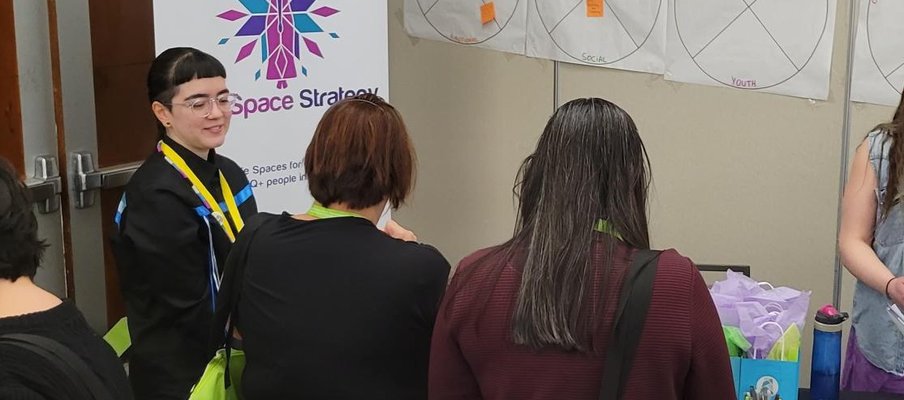
AFCS helps local Centres address capacity for cultural programming
Related Programs
In recent years, many Aboriginal Friendship Centres in the province saw unprecedented growth and demand for more culturally relevant programming. To help support this growth, the Aboriginal Friendship Centres of Saskatchewan (AFCS), worked with these centres to offer different capacity-building initiatives designed to help support staff in delivering meaningful cultural programming and services to their large and diverse communities.
According to AFCS, Aboriginal Friendship Centres remain integral for Indigenous people in Saskatchewan who have moved from reserves to urban areas as they provide a sense of cultural identity, safety, and community engagement. Important gathering spaces, these centres offer a wide range of programs and services tailored to meet the diverse needs of urban Indigenous populations, supporting physical, mental, cultural, spiritual well-being, and intellectual development.
“It’s very precious,” says Morgana Machea, manager, Safe Space Strategy, AFCS, of the role of Friendship Centres. “It’s the place to reconnect with your culture or to practice your culture. There are many generations of folks who still rely on Friendship Centres to have that connection.” AFCS, which receives Annual Global Funding from Sask Lotteries Trust Fund, serves as their advocate, support system and collaborator to help build capacity among centres to deliver culturally responsive programming.
Alicia Buckley, program director, AFCS, says that AFCS actively engages with urban Indigenous communities to identify and address their needs through evidence-based research and community consultations. “We’re seeing policy changes and public awareness changes that are really changing the way we address urban Indigenous people,” she says. This process helps identify programming priorities.
The AFCS currently focuses on supporting different types of cultural capacity-building programs, such as Cultural Humility Training, which raises awareness of the barriers and the issues that Indigenous peoples face when accessing services. Cultural Humility Training was originally offered to over 1,800 staff of the Saskatchewan Health Authority. The one-day course, featuring Saskatchewan-focused information, is currently available to the public.
Other capacity-building programs offered through AFCS include, “Honouring Her Spark” which supports Indigenous women’s and 2SLGBTQIA+ individuals’ economic empowerment, and a Safe Space Strategy, currently in development with partners from the Sexual Assault Services of Saskatchewan and OUTSaskatoon, aimed to address gender-based violence on Indigenous women and 2SLGBTQIA+ individuals.
AFCS expanded from two employees in 2018 to 12 full-time permanent staff members this past year. Its work enables cultural leadership and connections essential to supporting inclusion, equity and accessibility, as well as advancing Truth and Reconciliation in different ways.
As AFCS continues to expand as an organization, Buckley says the organization’s growth reflects a commitment to diverse representation and inclusivity in the workplace, which mirrors the welcoming nature of Friendship Centres to individuals of all backgrounds. “We welcome anyone and everyone. There is a reason why ‘Friendship’ is in the name of Friendship Centres.”

